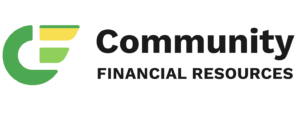
Direct Payments (R)Evolution
The growth of direct cash transfer (DCT) programs has been an exciting and promising tool as a means of addressing poverty and wealth inequality. In recent years it has garnered increasing attention, namely through Guaranteed Income programs. Funded through public and/or private dollars, these programs provide specific cash payments over a stated period to supplement an individual’s cash flow to stabilize their financial situation. Often missing in the discussion of DCT programs are payments and ways in which people receive those payments.
In 2018, the City of Stockton, California launched SEED (Stockton Economic Empowerment Demonstration) — a guaranteed income initiative that provided 125 randomly selected residents $500 per month for 24 months. The recipients received their monthly funds on CFR’s Focus Card. The City of Stockton was a precursor for many other DCT initiatives since COVID provided the catalyst for governments and nonprofits to expedite funds into the hands of citizens
At Community Financial Resources (CFR), we bring unique insights about DCT programs as the financial partner behind the first county and mayoral-led Guaranteed Income initiatives in the US. We’re also deeply involved in other innovative DCT programs initiated by nonprofits and government entities across the country.
There are critical factors that should be considered for the success of DCT programs, with a common goal of long-term financial stability for participants. This requires a thoughtful approach to target those individuals who would not only benefit from consistent income but have sufficient means to transition to a more stable financial situation. Issues arise about how participants receive payments. Many assume that participants are already banked and have the capability for direct deposit of cash payments. Others fail to realize that some participants don’t have (nor can obtain) a US Social Security Number (SSN). Some are undocumented for IRS purposes. Most banks, credit unions and financial tech providers won’t allow individuals to open an account for direct deposit without an SSN.
Participants may also lack the technology or capability to accept cash payments via digital wallets. Popular nonbank digital payment apps such as PayPal, Venmo and CashApp have seen increased hacking and fraud — placing them under the scrutiny of the Consumer Financial Protection Bureau because funds stored on these apps “may not be safe in the event of financial distress and are not held in accounts with federal deposit insurance coverage.”
CFR has been deeply involved in the evolution of DCT as our partners initiate new approaches to address specific needs of program participants. For example, Pay It Forward New Jersey provides low-income community college students a living stipend to support their educational journey, Fierce Advocates provides women in their doula training program a living stipend, and the Transformational Prison Project provides stabilization funds for returning citizens and stipends for participants attending programs.
Regardless of the DCT program, we believe participants should be integrated into the US financial system with an inexpensive bank account as a first step which enables them to save, build credit and ultimately increase wealth and achieve financial stability. This ‘scaffolding’ of financial capabilities has a positive long-term impact on someone’s financial wellness — beyond their participation in a DCT program. The best solution for DCT is a low-cost payroll card tied to an optional free saving account.
Not all payroll cards are the same. Numerous fees can make a big difference to someone earning a minimum wage. Many cards don’t allow ‘portability’ — accepting payments from sources other than the DCT program (employer, government benefits, tax refunds, etc.) Most cards are not available to ITIN (Individual Taxpayer Identification Number) individuals who are unable to obtain an SSN. CFR advocated for many years to make our payroll card accept ITIN’s. Now, they have access to a low-cost card and free basic banking account.
As DCT’s programs proliferate, let’s not forget to embrace trust and dignity for the individual and encourage self-determination to solve problems by moving them beyond short-term survival to long-term financial stability. This requires a thoughtful approach to identifying the right individuals who can benefit from steady income and provide them a low-cost and safe way to save, access credit and build wealth over time.





